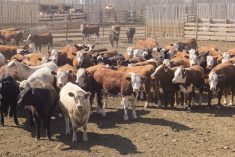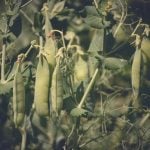Chicago | Reuters — Chicago Mercantile Exchange feeder cattle futures dropped to a four-month low on Tuesday and live cattle futures eased as Wall Street tumbled, traders said.
A surge in prices for grains used for livestock feed added pressure on feeder cattle, traders said. Corn and wheat futures each rose by their daily trading limits as traders feared prolonged disruptions to global supplies following Russia’s invasion of Ukraine.
The deepening Russia-Ukraine crisis also pushed the U.S. stock market lower.
Read Also

Trump mulls ending some trade ties with China, including in relation to cooking oil
U.S. President Donald Trump said on Tuesday Washington was considering terminating some trade ties with China, including in relation to cooking oil.
“When the equity markets get in trouble, then it seems like the meat markets get in trouble,” a commodities broker said.
March feeder cattle fell 1.45 cents, to 156.275 cents/lb., while April feeders sank 2.2 cents, to 159.8 cents/lb. (all figures US$). Both contracts touched their lowest levels since Nov. 2.
April live cattle ended 0.9 cent weaker at 140.525 cents/lb.
Prices also continued to soften for beef shipped to wholesale buyers. The choice boxed beef cutout value was 83 cents lower at $256.68/cwt, and the select cutout was down $1.89 at $251.52/cwt, the U.S. Department of Agriculture said.
CME lean hog futures strengthened, meanwhile, amid ongoing supply concerns, traders said.
“The reason prices keep moving up is because our supply keeps moving down,” a broker said.
Meatpackers slaughtered an estimated 482,000 hogs on Tuesday, up from 472,000 hogs a week ago, but down from 494,000 hogs a year ago, USDA said.
April hog futures closed 2.7 cents higher at 106.2 cents/lb., while June hogs ended up 3.35 cents at 116.775 cents/lb.
In poultry news, about 47,000 chickens on a farm in the Dutch city of Wageningen will be culled due to a highly infectious bird flu, the government said.
In the U.S. state of Indiana, officials reported a suspected case of highly pathogenic bird flu at a sixth turkey farm over the past month. They said 16,500 turkeys there will be culled.
— Tom Polansek reports on agriculture and ag commodities for Reuters from Chicago.
















